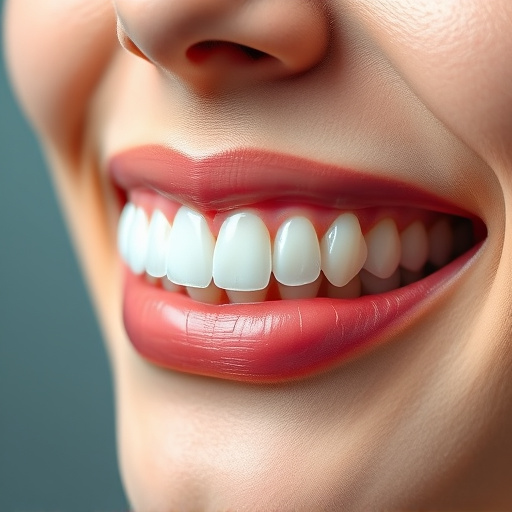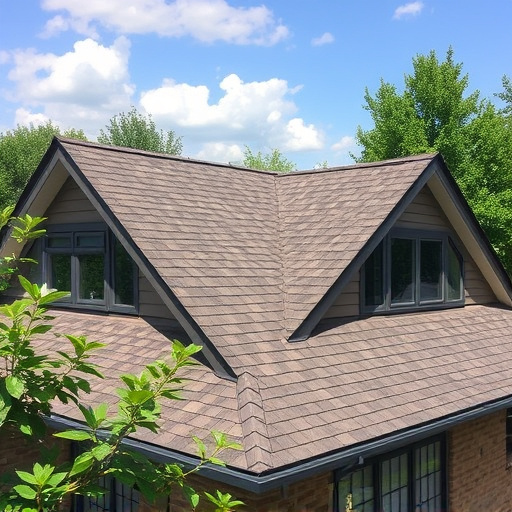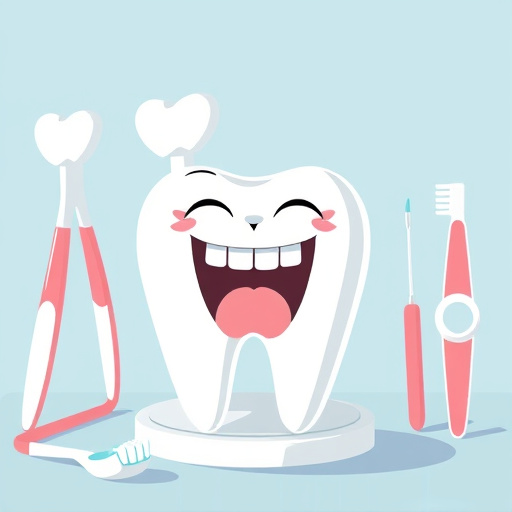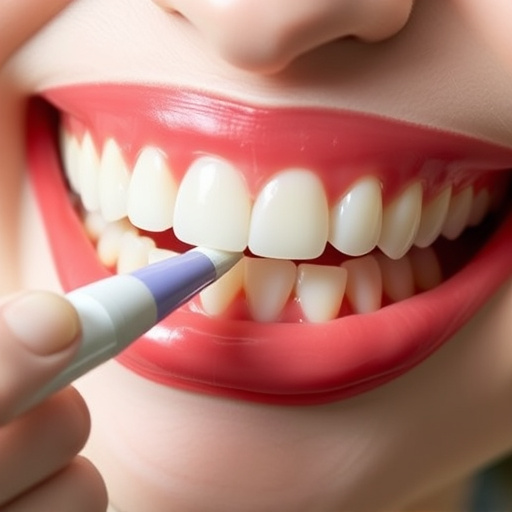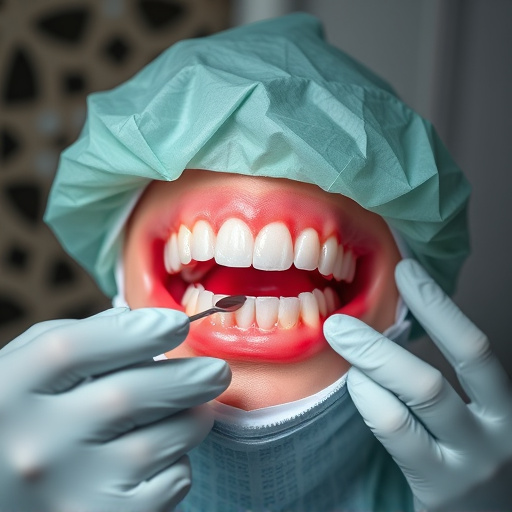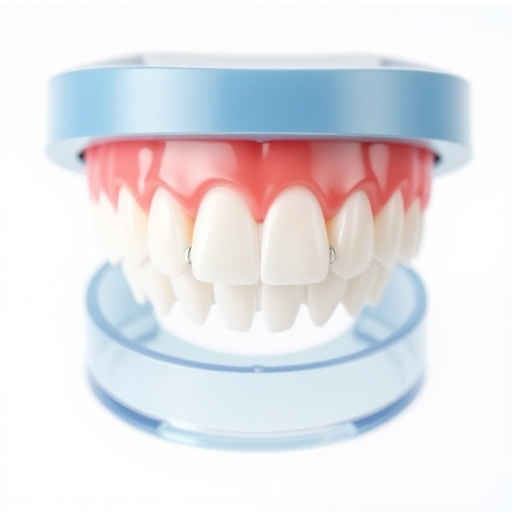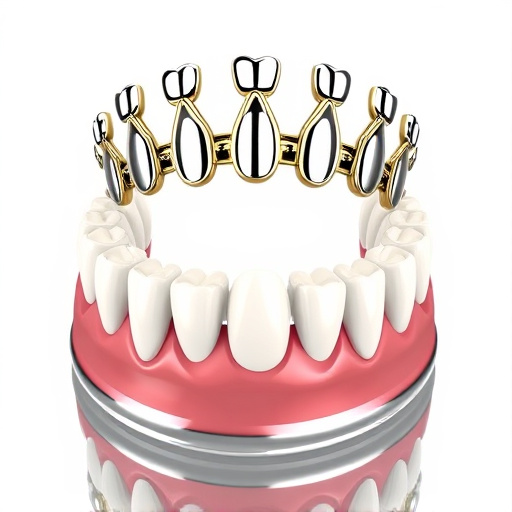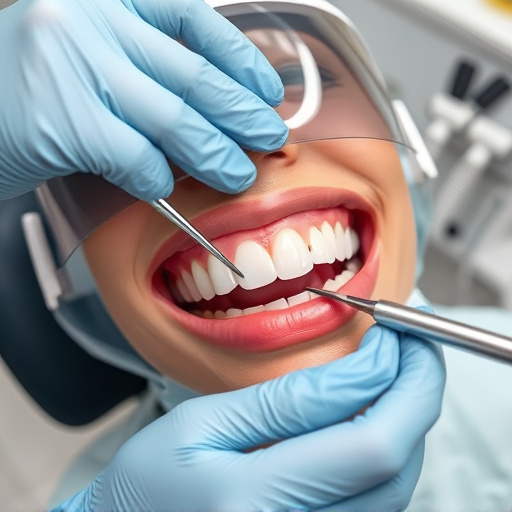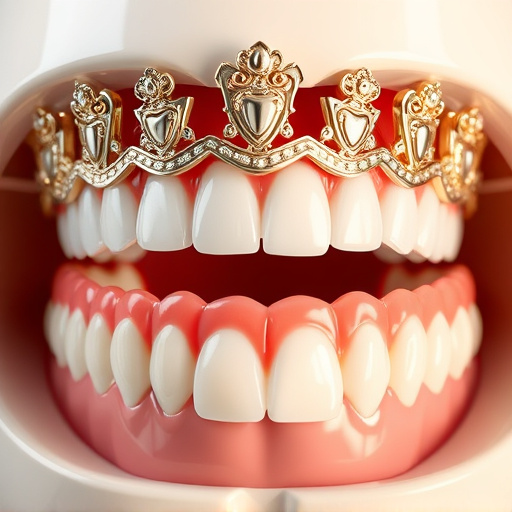Dentists play a key role in diagnosing and treating sleep apnea through oral exams, identifying blockages and abnormalities. They recognize symptoms like snoring, dry mouth, and headaches, referring patients to specialists for sleep studies. Dentists offer non-invasive solutions like custom mouthguards and advanced techniques like clear aligners, addressing both functional and aesthetic needs while improving overall oral health.
Dentists play a crucial role in sleep apnea treatment success, often serving as the first line of defense against this common yet serious disorder. In this article, we’ll explore how dentists contribute to understanding and managing sleep apnea through diagnosis and customized care plans. From fitting oral appliances to providing guidance on lifestyle changes, dental solutions offer a comprehensive approach to treating sleep apnea, transforming lives for the better.
- Understanding Sleep Apnea: Dentists' Role in Diagnosis
- Dental Solutions: Treating Sleep Apnea with Customized Care
- Success Stories: How Dentist Intervention Transforms Lives
Understanding Sleep Apnea: Dentists' Role in Diagnosis

Understanding Sleep Apnea involves recognizing a condition characterized by pauses in breathing during sleep, leading to reduced oxygen levels and disrupted sleep cycles. This disorder can have severe health consequences if left untreated. Dentists play a crucial role in diagnosing sleep apnea, often working hand-in-hand with medical professionals like pulmonologists and otolaryngologists. They examine oral structures, such as the jaw and soft tissues of the throat, which can provide valuable insights into potential blockages or abnormalities contributing to the condition.
In addition to their expertise in oral health, dentists are well-versed in evaluating symptoms that may indicate sleep apnea, including chronic snoring, dry mouth, and headaches. They might also suggest diagnostic tools like sleep studies or refer patients to specialists for further assessment. This collaborative approach ensures that individuals receive comprehensive care tailored to their specific needs, ultimately enhancing the success of subsequent sleep apnea treatment.
Dental Solutions: Treating Sleep Apnea with Customized Care

Dentists play a pivotal role in managing sleep apnea, offering tailored solutions that extend beyond traditional medical approaches. Customized dental care has emerged as an effective strategy to address this common yet serious disorder. By focusing on the oral structures and their impact on respiratory health, dentists can provide targeted interventions. One such method involves the use of custom-fitted mouthguards designed to keep the airway open during sleep, thus preventing the obstructions that characterize sleep apnea.
These dental solutions are particularly beneficial for patients who prefer non-invasive treatments or as adjuncts to other methods like continuous positive air pressure (CPAP) machines. Moreover, dentists can incorporate advanced techniques such as clear aligners or cosmetic fillings to address both functional and aesthetic concerns. Emergency dental care services also play a crucial role in managing acute episodes, ensuring prompt intervention when sleep apnea symptoms suddenly worsen.
Success Stories: How Dentist Intervention Transforms Lives

Many individuals struggling with sleep apnea often don’t realize that their dentist can play a pivotal role in managing and even transforming their condition. Dentists are at the forefront of identifying subtle signs of sleep apnea, which can be difficult for patients to recognize. Through comprehensive oral examinations and advanced diagnostic tools, they can detect the characteristic wear patterns on teeth caused by frequent grinding, a common symptom of undiagnosed sleep apnea.
Beyond treatment, dentists contribute to successful long-term management of sleep apnea. They offer tailored solutions like dental bonding or custom mouthguards that reposition the jaw, addressing the root causes behind snoring and disrupted sleep. These interventions not only alleviate symptoms but also promote preventive dentistry, ensuring patients’ overall oral health is considered in their sleep apnea treatment plans. Many patients report life-changing improvements, experiencing deeper, uninterrupted sleep and improved quality of life, all thanks to early dentist intervention.
Dentists play a crucial role in the success of sleep apnea treatment, offering specialized knowledge and personalized care. By understanding the condition’s impact on overall health, dentists can provide effective solutions through innovative dental techniques. Customized treatments, combined with successful patient stories, highlight the importance of dental intervention in managing sleep apnea. This approach ensures better sleep quality and improved lives for those affected by this common disorder, making dentists integral to a healthier, more restful community.

